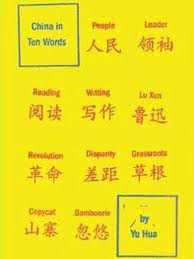Two images expressing identical emotions--of anger and disempowerment. However, one expression of violence is outward, as the hand grasping the key chain with a cross-like emblem, suggests, while the other is internalized.
The bearded man in flames, on the other hand, looks inward. The second image represents a man burning up in totality. There is no symbolism here, but a blatant rendition of the fictional Mohamed Bouazizi, the Tunisian man, whose death by self-immolation triggered off the Arab spring in 2010. Bouazizi is the principle character in Tahar Ben Jelloun's
New Yorker fiction,
By Fire (September 9, 2013).
In Angry White Men, Michael Kimmel, a Sociology Professor at the State University of New York at Stonybrook, travels the nation and writes of working class white men of America who comprise an emerging class of disenfranchised males. They have lost their jobs, resist integrating into the new economy, have lost families and custody of their children, have impregnated girlfriends, whom they have then cast away as "sluts", and in general feel "betrayed by the country they love, discarded like trash on the side of the information superhighway."
Kimmel categorizes them as members of various organizations of "emasculated" (at the level of feeling) white males, like the KKK, the fringe NRA, The Father's Rights Movement (an offshoot of the Men's Right Movement).
The men are justified in being angry, according to Kimmel, but they are unable to target the right sources that are responsible for their destitution and disempowerment in the first place--the corporate overlords, who have shipped their "masculine", i.e. manufacturing jobs overseas. The angry white men, rage, instead against women for allegedly "stealing American manhood." The angry white men, pissed upon and passed over by the current American economy, batter wives, blame ex-wives, subject girlfriends to domestic violence.
There are no collective men in Ben Jalloun's story, but the voice of the main character, an unemployed youth in an unnamed Arab nation, could be said to be a representative voice of rising anger against the state. The story begins on a note of grim despair, with the young man returning home, alone and worried, after having buried his father at a cemetery. The son is struck less by grief than by the impending family obligation that as the oldest son of the family, he now has to fulfill.
The man is a college graduate with a degree in history. He is jobless and identified by the state as either a communist or an Islamist. The young man tries making a living as a fruit vendor, but he is persecuted by the police.
We get a hint that the polity of the nation is about to come apart, the youth are raging against the ruling class that is disconnected from the masses.
Anger is ubiquitous in this society. However, people seem to know who precisely are responsible for this state of affairs--the ruling class and their cronies. At one point in the story, the young man, kicked around by the police wants to speak to the town's Mayor. The Mayor refuses to talk to him. In a scene, the young man, lying prone on the ground because of a police attack on him, wishes he had a gun. If he had a gun, he would smash each and every person in the police department, he thinks. He would smash the government, he thinks. But he doesn't have a gun.
The thought of the disempowered and the humiliated inevitably turn to violence, whether it be in America or in an Arab nation. But the important question is who should the gun be turned against. The guns of anger among the white males seems to be turned against the wrong target, while the anger among the folks in the story, By Fire, is pinpointed against the state.
In Angry White Men, Kimmel suggests that the average white American male's anger is the anger of a demographic that had taken its privilege for granted--the white male has occupied a position of social power by virtue of being white for years. Manufacturing has been a primary catalyst for the ascendancy of the white male in America, till the tides began to turn and manufacturing got booted out of the nation.
It's not a weakening of their gender-power that the angry white male should bemoan, says Kimmel, but the loss of the white male's class status. Women or "feminazism" hasn't triggered the average white American male's demotion from middle to fringe class; the corporations have.
The average white American man is not encouraged to immolate themselves to make a point, but in the book they are asked to be a little more discerning in identifying their enemies.
It's easy to beat up on the wife, who has suffered the same loss of class status, fallen into poverty perhaps, as her man. But it's hard to beat up on the system, because to beat up on the system would mean being unpatriotic or turning into the dreaded "Communist" which is the worst thing imaginable for a majority of the "plain" American Joes.
Does real patriotism lie in treating capitalism and its new form of ruthless profit-mongering as sacrosanct, or does real patriotism lie in rescuing the nation from the grip of such capitalism?
At the end of By Fire, the young man sets himself ablaze in front of the Mayor's office. There is a national uprising and the President flees the country. One nation, howsoever hobblingly, is on its path to freedom or a sliver of it.








